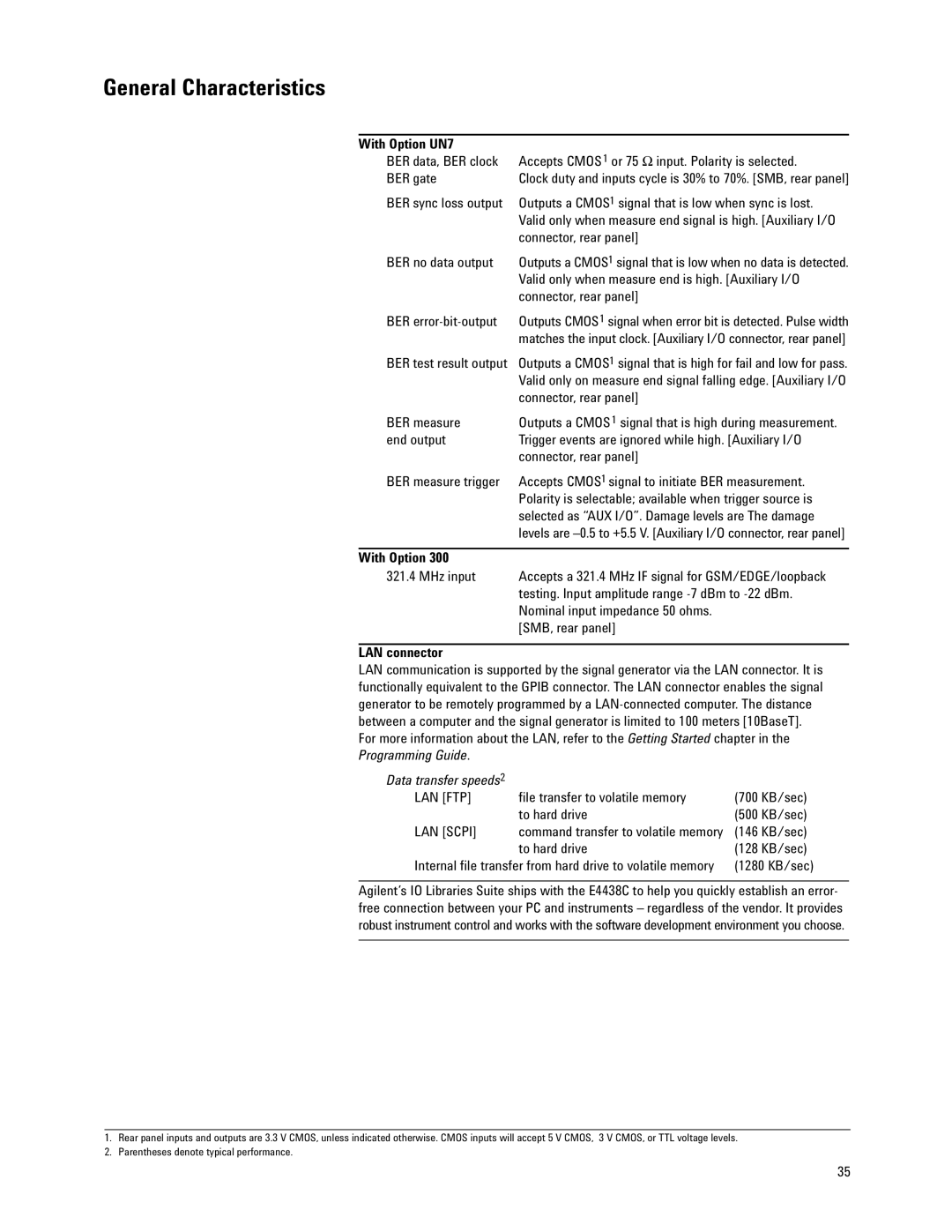
General Characteristics
With Option UN7 | Accepts CMOS 1 or 75 Ω input. Polarity is selected. |
BER data, BER clock | |
BER gate | Clock duty and inputs cycle is 30% to 70%. [SMB, rear panel] |
BER sync loss output | Outputs a CMOS1 signal that is low when sync is lost. |
| Valid only when measure end signal is high. [Auxiliary I/O |
| connector, rear panel] |
BER no data output | Outputs a CMOS1 signal that is low when no data is detected. |
| Valid only when measure end is high. [Auxiliary I/O |
| connector, rear panel] |
BER | Outputs CMOS1 signal when error bit is detected. Pulse width |
| matches the input clock. [Auxiliary I/O connector, rear panel] |
BER test result output | Outputs a CMOS1 signal that is high for fail and low for pass. |
| Valid only on measure end signal falling edge. [Auxiliary I/O |
| connector, rear panel] |
BER measure | Outputs a CMOS 1 signal that is high during measurement. |
end output | Trigger events are ignored while high. [Auxiliary I/O |
| connector, rear panel] |
BER measure trigger | Accepts CMOS1 signal to initiate BER measurement. |
| Polarity is selectable; available when trigger source is |
| selected as “AUX I/O”. Damage levels are The damage |
| levels are |
|
|
With Option 300 |
|
321.4 MHz input | Accepts a 321.4 MHz IF signal for GSM/EDGE/loopback |
| testing. Input amplitude range |
| Nominal input impedance 50 ohms. |
| [SMB, rear panel] |
LAN connector
LAN communication is supported by the signal generator via the LAN connector. It is functionally equivalent to the GPIB connector. The LAN connector enables the signal generator to be remotely programmed by a
Data transfer speeds2 |
|
|
LAN [FTP] | file transfer to volatile memory | (700 KB/sec) |
| to hard drive | (500 KB/sec) |
LAN [SCPI] | command transfer to volatile memory | (146 KB/sec) |
| to hard drive | (128 KB/sec) |
Internal file transfer from hard drive to volatile memory | (1280 KB/sec) | |
Agilent’s IO Libraries Suite ships with the E4438C to help you quickly establish an error- free connection between your PC and instruments – regardless of the vendor. It provides robust instrument control and works with the software development environment you choose.
1.Rear panel inputs and outputs are 3.3 V CMOS, unless indicated otherwise. CMOS inputs will accept 5 V CMOS, 3 V CMOS, or TTL voltage levels.
2.Parentheses denote typical performance.
35
